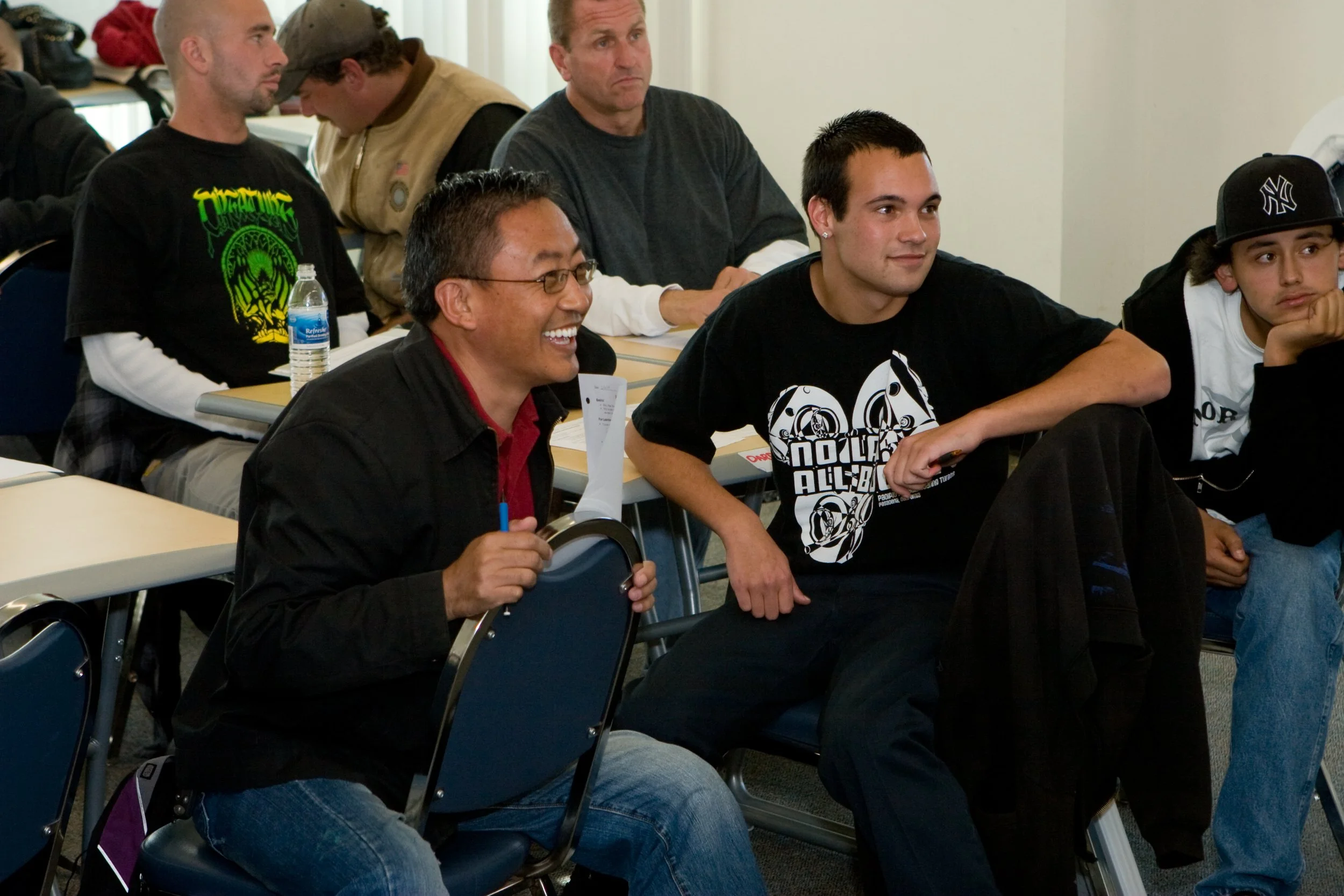Inoculating with Empathic Discipline
Faculty have a tremendous ability to positively impact their students’ education in ways that go beyond teaching content. Teachers’ mindsets and the classroom environments they create can impact many students in a given year and many more in a longer span of time than one-time interventions do. The quality of teacher-student relationships is fundamentally important to students’ motivation and engagement with school. When students feel mutual respect, understanding, and trust in their learning environment they are better behaved and more able to focus on their education (Allen et al. 2011; Okonofua et al. 2016).
Faculty and Student Success
Students coming from backgrounds of scarcity often have experiences of being powerless in the face of authority, whether in benefits offices, the criminal justice system, or inflexible workplaces. If they feel the same sense of powerlessness in the classroom they may lose hope, become disengaged, or have diminished self-esteem. Many students were negatively impacted by punitive discipline during their early education and can be better served by empathic approaches that engage with students’ experiences, challenges, and motivations. When students have even one teacher who connects with them in a respectful and understanding way, their academic performance, disciplinary records, and self-reported investment in their education all improve (Okonofua interview; Okonofua et al. 2016). Okonfua research indicates that having one respectful faculty can inoculate students from the harm caused by teachers that are less understanding.
Faculty can support students and be understanding of their needs by avoiding fundamental attribution errors that label students as troublemakers or as disinterested in their education. For example, if a student fails to complete an assignment, faculty can engage with that student to ask about the cause (which could be a family emergency, a sudden change in work schedule, or some other crisis) rather than laziness or lack of commitment. Empathic approaches like this one create open communicative pathways between instructors and students and help build trusting and open relationships (Daminger et al. 2015).
